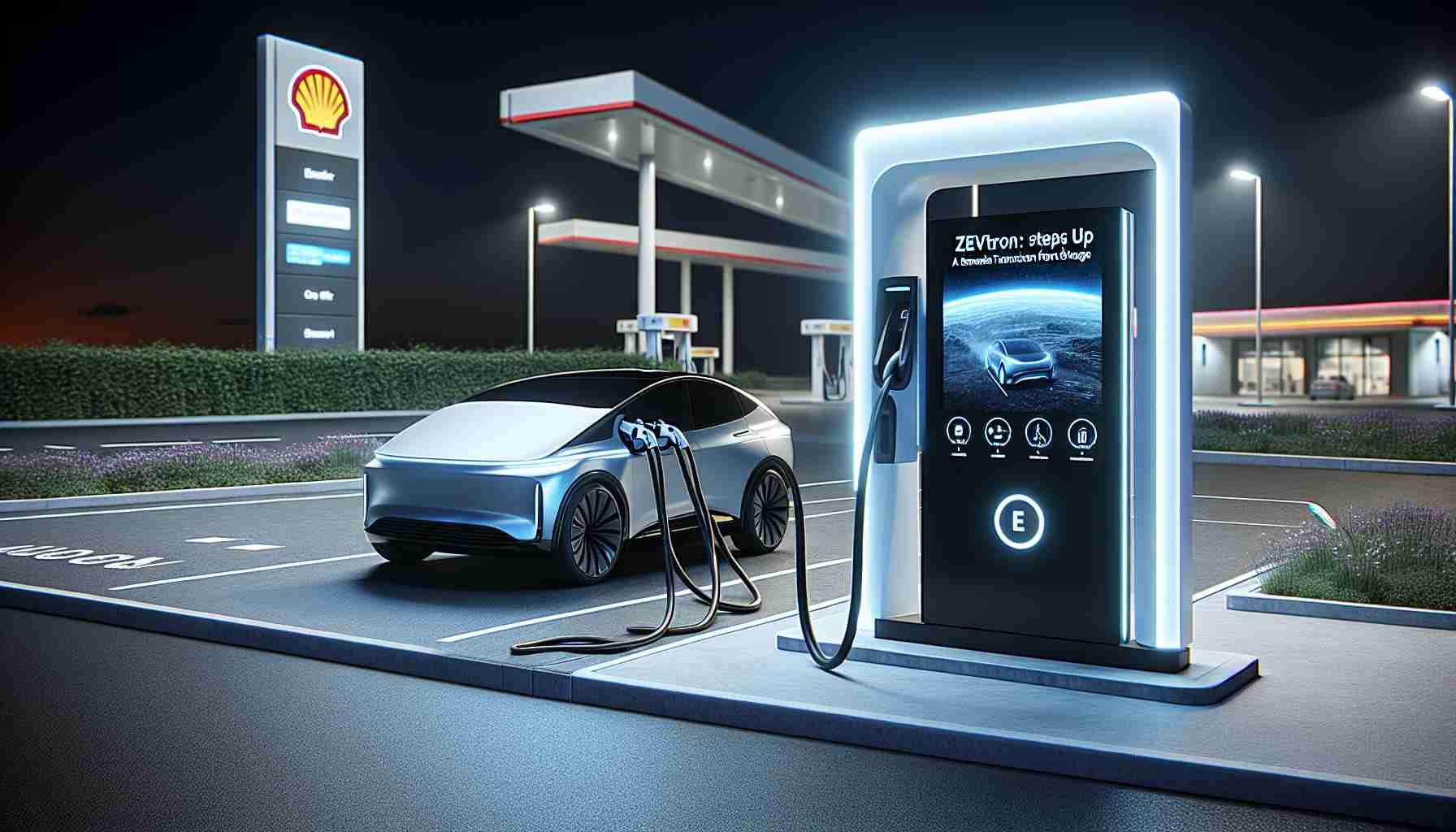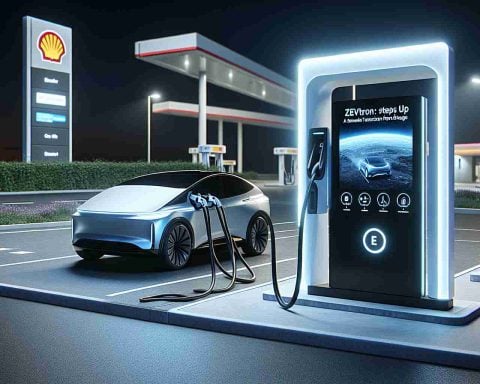- Zevtron steps in as a key player to replace Shell in the North American EV charging market, focusing on seamless integration for current venues.
- Shell exits third-party EV charging by April 30, shifting its investments to newer strategic areas, leaving a gap Zevtron aims to fill.
- Zevtron offers a white-label platform compatible with OCPP chargers, avoiding hardware replacements and simplifying the digital transition.
- Zevtron’s adaptable platform supports diverse models, including public charging, fleet management, and residential setups.
- The company’s mission is to enhance existing infrastructures with customizable solutions, avoiding service disruptions for Shell’s 4,000+ charging points.
- This story highlights the necessity of innovation and adaptability in the sustainable energy sector.
Against the backdrop of an evolving energy landscape, Zevtron emerges as a key player, ready to fill the void left by Shell’s departure from the third-party EV charging market across Canada and the United States. With its headquarters nestled in the vibrant hub of Carlsbad, California, Zevtron swiftly leans into the challenge, offering a lifeline to venues currently tied to the soon-to-be-defunct Shell Sky Software.
By April 30, Shell plans to withdraw its support for third-party chargers, pivoting its investments toward areas of perceived strategic strength. Yet, where one door closes, another opens, and this door is draped in Zevtron’s innovative white-label platform. Promising a straightforward transition, Zevtron’s technology seamlessly integrates with OCPP-compatible charging stations—no need for the costly replacement of existing hardware. It’s a shift designed for the digital age, sans the hassle of downloading apps or navigating cumbersome interfaces.
Zevtron’s platform caters to a dynamic array of operational models, proving its versatility and commitment to adaptability. From bustling public charging stations to complex fleet management and cozy residential setups, the company aims to provide entities with a tailored experience that meets their unique requirements.
Bob Andrews, the driving force at Zevtron, articulates the company’s mission: enabling clients to preserve their current infrastructure while upgrading to a sophisticated, customizable solution. For Shell’s network of over 4,000 charging points in the US, the message is clear—embrace the transition now to steer clear of service disruptions.
This unfolding story encapsulates the broader shift toward sustainable energy solutions, where innovation and adaptability are no longer just strategic choices, but necessities for thriving in the modern grid.
Is Zevtron the Future of EV Charging in North America?
Exploring Zevtron’s Role in the EV Charging Landscape
As Zevtron takes center stage in the North American EV charging sector, many stakeholders are eager to explore the company’s potential to reshape the energy landscape. The looming transition, spurred by Shell’s exit, has thrust Zevtron into a pivotal role, but what exactly does this mean for the market and consumers? In this article, we delve deeper into the facets of Zevtron’s offering that are poised to influence the EV charging industry’s future.
How Zevtron’s White-Label Platform Works
1. Seamless Transition: Zevtron’s platform utilizes the Open Charge Point Protocol (OCPP), ensuring its compatibility with existing EV charging infrastructure. This open-standard protocol is a key advantage, allowing venues to retain their current hardware while simply upgrading the software interface.
2. No New Hardware Required: This approach eliminates the need for additional expenditure on hardware replacement, making the transition cost-effective for businesses.
3. User-Friendly Interface: The platform operates without demanding users to download new apps, offering a smooth user experience similar to familiar mainstream digital interfaces.
Real-World Use Cases
– Public Charging Stations: Zevtron’s adaptable system can be deployed in high-traffic public areas, offering consistent service without disruption.
– Fleet Management: Large-scale operations dealing with fleets can benefit from Zevtron’s versatile software, which can handle varying types of vehicles and charging needs.
– Residential Solutions: Zevtron provides customized solutions for home-based charging, streamlining the experience for individual users.
Market Trends and Predictions
Industry experts predict that the EV charging infrastructure will undergo significant growth, fueled by increasing EV adoption and governmental incentives. According to a report by IEA, the number of EVs could reach 125 million by 2030, necessitating robust support infrastructure.
Potential Controversies and Limitations
– Market Saturation Challenges: With many players entering the EV charging sector, Zevtron may face challenges in distinguishing itself amid fierce competition.
– Dependence on OCPP: While OCPP compatibility is an advantage, it also ties Zevtron’s success to the popularity and reliability of this protocol.
Reviews and Comparisons
Zevtron distinguishes itself through its user-centric design and ease of integration. In comparison to other platforms like ChargePoint and EVBox, Zevtron’s emphasis on customization and minimal operational disruption offers a unique proposition.
Pros & Cons Overview
Pros:
– Cost-effective integration
– Easy to use, no app required
– Broad compatibility with existing infrastructure
Cons:
– Dependent on third-party infrastructure
– Must compete against established players
Security and Sustainability
Zevtron’s platform prioritizes security, implementing robust measures to protect user data and prevent unauthorized access. Sustainability is a key aspect of Zevtron’s mission, as it aligns with the broader ecologically-driven goals of transitioning towards sustainable energy.
Actionable Recommendations
– For Venue Owners: If your current setup includes Shell Sky Software, plan for a transition as soon as possible to avoid disruptions.
– For Consumers: Stay informed about the latest updates and potential changes in services provided by local charging stations.
– For Businesses: Consider Zevtron as a viable option for fleet management and public charging needs, given its competitive pricing and adaptability.
By harnessing the potential of technologies like OCPP and focusing on seamless user experiences, Zevtron is positioned as a frontrunner in the shift towards a more sustainable, efficient EV charging ecosystem. For more information on their offerings, visit the Zevtron website.














